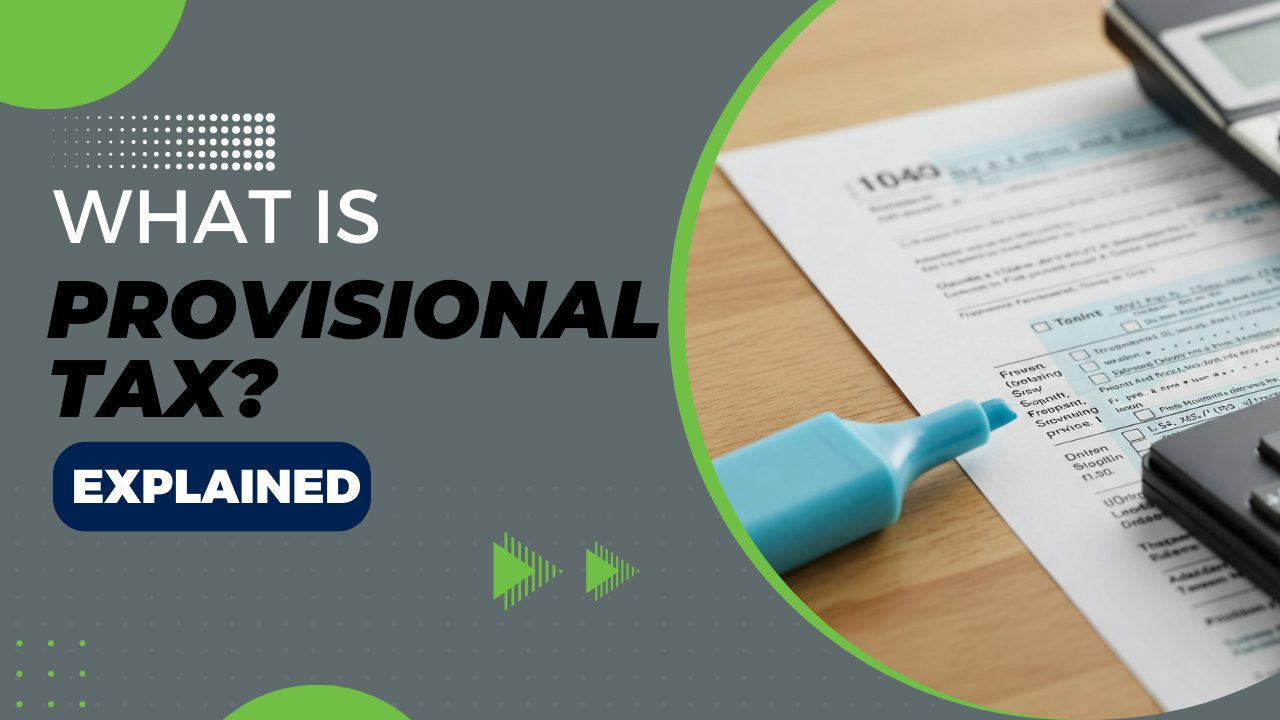
If you run a small business, work as a freelancer, or earn income that isn’t from a salary, you might have heard of provisional tax. But what does it really mean, and how would it affect you? Let’s break it down in simple terms.
What is Provisional Tax?
Provisional tax is a system of paying your tax in advance instead of a lump sum at the end of the year. It helps to spread the tax burden across the year.
Think of it like this: Imagine you run a fruit stall. Instead of paying rent for your stall all at once at the end of the year, your landlord asks you to pay in smaller amounts throughout the year. This makes it easier for you to manage your money. That’s how provisional tax works for your income tax.
Who Needs to Pay Provisional Tax?
You’ll have to pay provisional tax if you had to pay more than $5,000 tax at the end of the year from your last return.
You need to pay provisional tax if you:
1. Work as a freelancer or run a small business
2. Earn rental income
3. Have Investment Income.
4. Have any other income on which tax isn’t automatically deducted.
If you are employed and your employer deducts tax from your salary, you don’t need to worry about provisional tax.
How Does Provisional Tax Work?
Instead of paying tax once a year, you pay it in two or three instalments. These payments are based on how much money you expect to earn during the year.
Different Methods of Calculating Provisional Tax
There are different ways to calculate provisional tax, depending on what works best for your situation:
Standard Method (Default): 105% of your previous year’s Income Tax (RIT).
Estimation Method: You estimate your income and calculate your tax accordingly. This is useful if your income varies significantly.
GST Ratio Method: If you’re registered for GST, you can base your provisional tax on a percentage of your GST turnover.
Interest and Penalties
If you underpay your provisional tax, Inland Revenue (IRD) may charge Use of Money Interest (UOMI) and late payment penalties. However, if you overpay, you might get a refund or use it toward future tax payments.
Tax Pooling Option
New Zealand businesses can use tax pooling intermediaries to reduce interest and penalties. This allows flexibility in making payments if cash flow is tight.
Who Doesn’t Need to Pay Provisional Tax?
If your Residual Income Tax (RIT) is below $5,000, you don’t need to pay provisional tax. Also, salary earners (whose tax is deducted at source through PAYE) do not need to worry about it.
Can Provisional Tax Change During the Year?
Yes! If your income changes significantly, you can update your estimated tax to avoid overpaying or underpaying.
For eg, You are a photographer in New Zealand. In 2023 you paid a tax of $6,000. Based on the standard method, your provisional tax for the 2024 tax year would be calculated as 105% of the previous year’s RIT, i.e. $6,300. This amount is divided into three equal instalments:
- First Installment (28 August 2024): $2,100
- Second Installment (15 January 2025): $2,100
- Third Installment (7 May 2025): $2,100
It’s important that estimates are accurate to avoid potential interest charges on underpayments.
Why is Provisional Tax Important?
Avoids Large Year-End Bills: Paying in small amounts makes it easier to manage finances.
- Prevents Penalties: If you don’t pay on time, tax authorities might charge penalties.
- Better Cash Flow Management: Helps you plan your money better throughout the year.
Provisional Tax – What You Need to Know
What is Provisional Tax?
Provisional tax is a system of paying your tax in advance instead of a lump sum at the end of the year. It helps to spread the tax burden across the year.
- Why do I have to pay provisional tax?
If your tax liability was more than $5,000 last year, the government requires you to pay tax in advance for the current year. - Is it compulsory?
Yes, if your tax bill exceeds $5,000, you must pay provisional tax. If you only earn a salary with PAYE deductions, you don’t have to worry about it. - Can I avoid or bypass provisional tax?
No, but you can manage it better. Options like tax pooling can help reduce interest and penalties. If your income varies, you can estimate your tax instead of using the standard method. - How do I pay provisional tax?
It’s usually paid in two or three instalments based on your last year’s tax. For example, if your tax last year was $6,000, your provisional tax would be around $6,300, split into three payments. - What happens if I don’t pay?
The IRD may charge interest and penalties on unpaid tax. It’s best to plan payments to avoid extra costs. - Can the amount change during the year?
Yes, if your income drops or increases significantly, you can adjust your estimated tax to avoid overpaying or underpaying. - What’s the benefit of paying provisional tax?
It prevents a big year-end tax bill, helps with cash flow, and avoids penalties.

